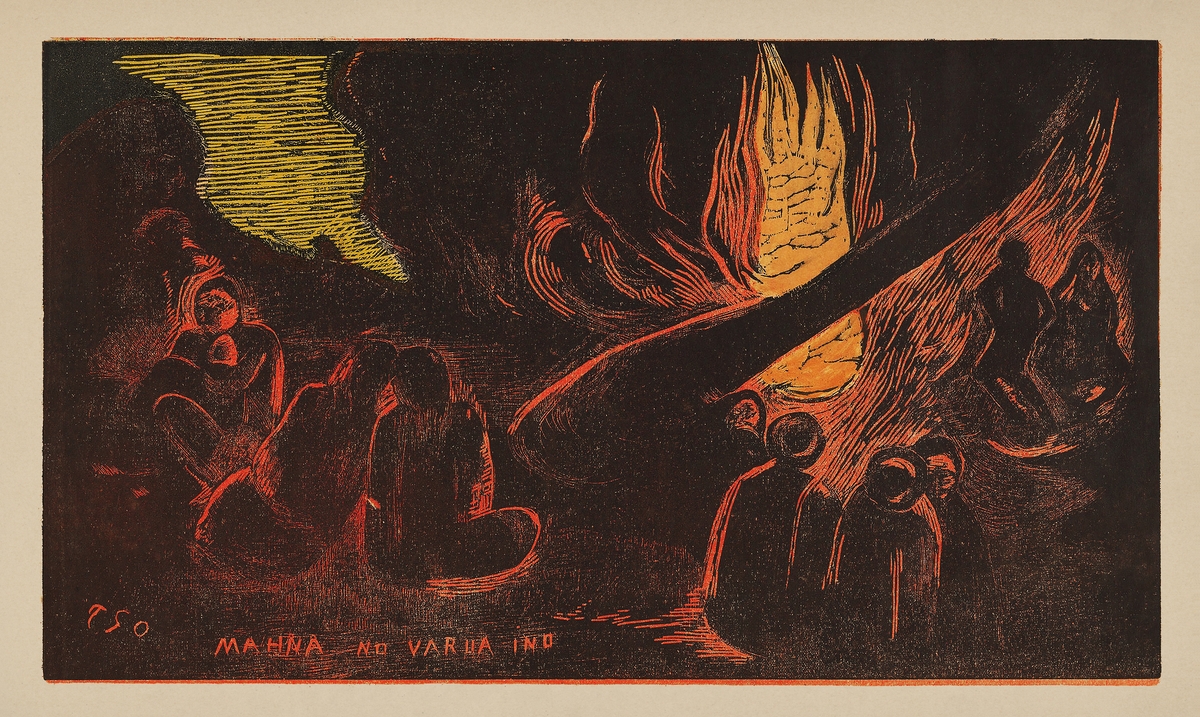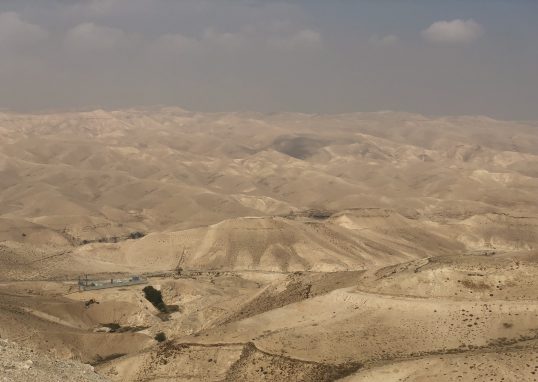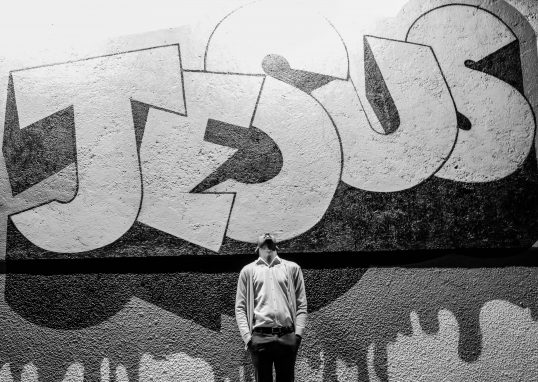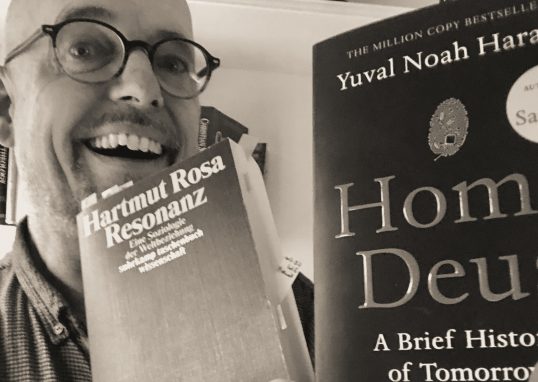
Painting by Paul Gauguin: The Devil Speaks (1894).
If non-Germans ask me outside Germany about Hitler and the extermination of the Jews, I can take it as a personal honor: They obviously feel safe enough to discuss this dark chapter of German history with me (others prefer to avoid the topic in the presence of Germans). However, the Holocaust offers new opportunities in my own communication with the world.
“Never again!” “How could that happen?!” “Why didn’t anyone do anything?” “What can we learn from this?” I grew up with such questions and statements, paired with countless, detailed stories and eyewitness accounts from WWII. As a child they were sometimes annoying and too much for me, but today I am grateful to be able to pass on a tiny part of the collective memory.
The ancient Greek word ὁλόκαυστος (holókaustos) means something like “completely burned” and has been used throughout history for things like ritual burnt offerings or fire disasters. For most of us today, the word has only one meaning: Americans started to use it in the 1960s as a synonym for “Hitler’s final solution to the Jewish question”. In Swedish, the Holocaust is simply called “the annihilation”. Of course, the Holocaust is still a topic that one prefers to leave out or to forget entirely.
Surprisingly, I am now using this vocabulary anyway. More and more.
For example, I would invite to take a mental journey back in time to the early 1930s. I’d ask to imagine as vividly as possible what life in a European city might have looked like around 1932: Are there horses? Or vehicles looking like antique cars? Market stalls? Newspaper boys? I would inform that we are doing this time travel for the purpose of street interviews. So, please, choose any person who is walking around in your imagination. What does that person look like? Which clothes? Hairstyle? You walk up to the person and she or he allows you to ask your questions, and so you go: “What do you think of the Holocaust and how can we prevent it?” Now your imagination gets a tough challenge: How does this person react? What’s the response you get, back then in 1932?

Who would have seriously thought in 1930 that only fifteen years later around six million Jews would have been systematically killed using industrial methods? Six million people?!
Afterwards, of course, you can ask yourself how this could have been prevented. Why was nothing done? Wasn’t it predictable after all? Wasn’t there enough evidence anyway that pointed to an impending Holocaust? But Holocaust was still a word without meaning, without any relevance, without any connection to one’s everyday life. So in the early 1930s, people would have reacted in the same way as many of us react today when we hear about climate change. Maybe with a little more or less incomprehension. The history of the churches isn’t a glorious one either when it comes to the Holocaust. The church too did not recognize the problem – or did not want to see it. The so-called Confessing Church, of which we all want to be so proud today, was nothing but a dangerous exception to the dominating rule of lazy inaction. So, pretty much like today. Nowadays we would have far more facts than just Mein Kampf though.
Nature, one of the most established journals for scientific publications (so more serious than Hitler and his book we can assume), published a calculation in 2018 that was supposed to express the human suffering of the climate catastrophe in numbers. An attempt was made to calculate the mathematical difference between two possible future scenarios, i.e. the worldwide number of victims at 1.5°C global warming minus the number of victims at 2°C. Result: That 0.5°C temperature difference would put 150 million more lives at risk worldwide.
150 million. One hundred and fifty million. People. Souls. Fates. 150 : 6 = 25. In other words: 2°C global warming instead of “only” 1.5°C = Holocaust x 25. But this time we don’t have a villain with a mustache on whom we can blame everything. This time it is Our Kampf. We are all in the process of gasifying 150 million people with nitrous oxide, methane or carbon dioxide and burning up their future. Not just Jews, by the way. We’re relentlessly killing everyone. Jews, Christians, atheists. Muslims, Hindus, animists. In cold blood we stick at nothing while paving our way with corpses just to remain able to continue our lives as gods of luxury and rulers of nature. Church where are you?!
Incidentally, the IPCC updated the figure of 150,000,000 deceased souls a little later and increased it drastically. But those are numbers we simply cannot fathom or comprehend. Only one thing is certain: Hitler’s crimes will pale completely in comparison to the crimes of our generation. Adolf won’t play a major role anymore in 50-100 years. We are going to take the part of the bad guys who really screwed it up. As long as humanity exists (and Jesus has not yet returned), our generation will be bombarded with questions like:
Why didn’t you do anything?
Why did you just watch?
And not only that: Why did you still continue to contribute so hard?
In the decades to come, books will be written about us and films will be made about us. The hippie generations and their children will be depicted as just as unbearable, callous, inhuman and merciless as the Gestapo or concentration camp guards in the portrayals of the later 20th century. With one difference: the Nazis were evil, but intelligent. We, on the other hand, we will be remembered as selfish idiots who thought they were terribly clever. The latter is at least 25 times worse.
As a Christian, I have decided to step out of that malicious game. As a German, I get up, put words like “Holocaust” back in my mouth and shout: “Never again!”






1 comment
Comments are closed.